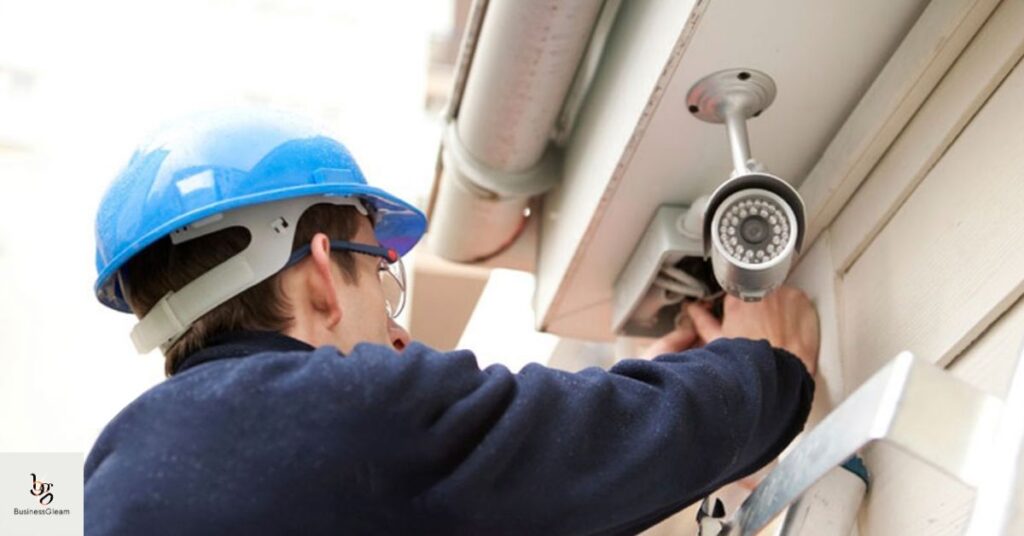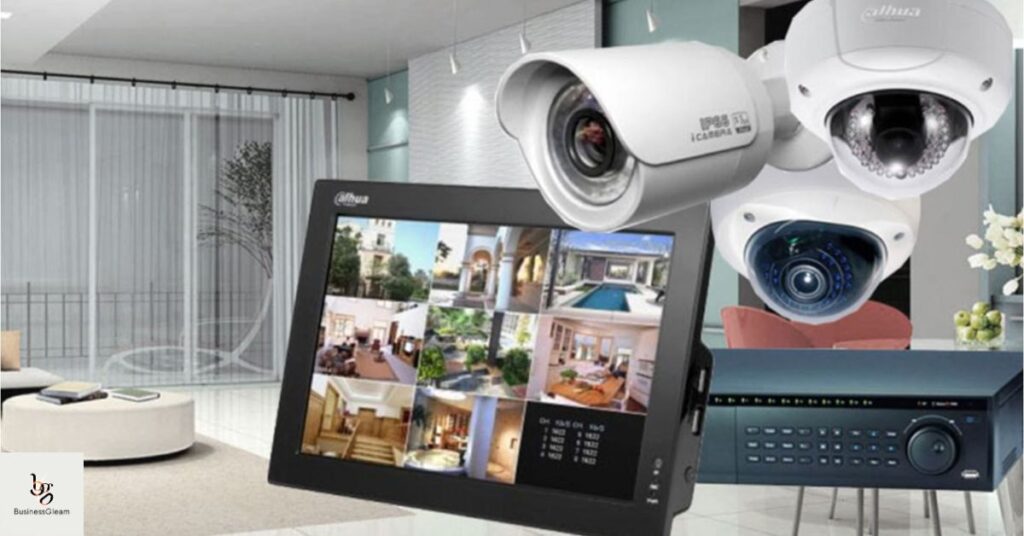Privacy concerns have become a prevalent issue in contemporary society. It’s common for websites and applications to gather extensive data from users, while smart devices have faced scrutiny for potentially eavesdropping on tenants’ conversations.
Landlords, worried about property misuse, may contemplate installing security cameras across rental premises to safeguard their investments. However, the legality of such actions remains uncertain.
Delving deeper into the matter, it’s essential to understand both landlords’ and tenants’ rights concerning surveillance. By exploring the nuances of this topic, interested parties can gain insights into selecting security measures that align with legal and ethical standards, ensuring a fair balance between privacy and property protection.
Read it: Maanvir’s Business 117 Peter Street Unit 312 Toronto on m5v0m3
Understanding Landlord Rights: Security Camera Installation in Rental Properties
The prerogative to install security cameras in rental properties rests with property owners, who often advocate for such measures, citing benefits like heightened security and improved property management.
However, installing cameras comes with certain restrictions. Notably, all cameras must be visible, with hidden or covert devices being strictly prohibited within tenants’ residences. Moreover, CCTV placement is prohibited in private areas such as bathrooms and bedrooms. It’s imperative that tenants are informed about the presence of security cameras, and recording individuals without their consent is unlawful.
Tenants have the right to take legal action if recorded without their knowledge. Additionally, state-specific laws may further delineate these regulations. Landlords contemplating camera installation must carefully consider their state’s legislation before proceeding. Being mindful of legal boundaries ensures a fair balance between property protection and tenant privacy, fostering a harmonious landlord-tenant relationship.
Unveiling Tenant Rights: Navigating Security Camera Installation in Rental Properties

In the realm of security camera installation, tenants wield more autonomy within their rental dwellings compared to landlords. They possess the explicit privilege to outfit their homes with surveillance systems, whether they opt for conspicuous or covert setups. However, this freedom does not absolve tenants of responsibility; rather, it demands adherence to meticulous standards during installation. For instance, tenants must meticulously position their cameras to avoid encroaching on the privacy of neighboring properties. Landlords and building managers, too, shoulder the obligation of ensuring that any permanent fixtures do not compromise the overall privacy of adjacent residents.
Beyond indoor installation, tenants face additional considerations when venturing to set up cameras outdoors. It’s imperative that these external surveillance devices do not point towards neighboring homes’ entrances, parking spaces, or yards. In essence, any cameras installed by tenants should focus exclusively on monitoring their own premises.
Moreover, tenants must be cognizant that landlords may impose restrictions on camera placement via the initial lease agreement. To navigate these potential constraints, tenants should conduct thorough research into applicable regulations and explore camera models that align with both legal stipulations and any landlord-issued directives.
Exploring the features of Capcuttemplate can be quite exciting. This tool is designed to help you create amazing videos with ease. Whether you are new to video editing or have some experience, Capcuttemplate offers features that can enhance your creativity. Let’s dive into some of the key features that make Capcuttemplate stand out.
By embracing these nuanced considerations and respecting the boundaries delineated by both law and lease, tenants can foster a harmonious living environment while fortifying their personal security measures.
The Advantages of Security Camera Installation
Despite the regulatory constraints surrounding camera deployment, security cameras in rental properties offer substantial benefits to both landlords and tenants. Chief among these advantages is the shared enhancement of security.
For landlords, the presence of cameras mitigates the inherent risks associated with renting out properties. By monitoring tenant behavior, landlords can proactively identify and deter potential theft or unauthorized activities, thereby safeguarding their investments.
Similarly, tenants who opt to install cameras gain autonomy over their rented space, effectively curbing landlords’ unwarranted intrusion while bolstering security measures. This proactive approach not only protects personal belongings but also acts as a deterrent against theft by external parties, such as janitorial staff or intruders.
Moreover, strategically positioned cameras serve as a deterrent against package theft and other criminal activities, contributing to a safer living environment for tenants. By fostering a mutual sense of security, security cameras play a pivotal role in promoting a harmonious landlord-tenant relationship while safeguarding property and personal belongings.
Best Practices for Installing Security Cameras
- Maintain Transparency: Always inform your tenants about the installation of security cameras and refrain from using hidden cameras.
- Respect Privacy: Never install cameras in private areas where tenants have a reasonable expectation of privacy, such as bathrooms and inside apartment units.
- Utilize Masking Features: Request your installer to activate camera masking features to automatically cover the interiors of units when doors are open and within the camera’s field of view.
- Perform Regular Maintenance: Regularly check and maintain your cameras to ensure they remain in optimal condition.
- Secure Data: If you are recording footage, ensure it is stored securely to protect tenant privacy.
Read it as: Bench Craft Company Lawsuit: Unveiling The Legal Battle
Top Camera Options for Rental Properties
When it comes to safeguarding rental properties, both landlords and tenants require reliable surveillance solutions. Here are some of the top cameras ideal for rental property surveillance:
Nest Cam Indoor
The Nest Cam Indoor seamlessly integrates the Internet of Things (IoT) with conventional home security. This camera enables live video streaming directly to the owner’s smartphone, with the added capability to recognize familiar faces and send alerts regarding their presence. While the Nest Cam Indoor may necessitate a memory subscription, its advanced features offer undeniable security benefits, albeit at a higher cost.
Arlo Q
For those seeking a more traditional security camera, the Arlo Q presents a compelling option. Equipped with a microphone for two-way communication and night vision capabilities, it ensures round-the-clock property surveillance, enhancing safety and peace of mind.
Netatmo Welcome
Part of a comprehensive smart home ecosystem, the Netatmo Welcome not only records activities within a property but also notifies owners of any detected motion. Landlords can receive alerts regarding new visitors or tenant activities, while tenants can monitor maintenance operations remotely. However, careful management of the camera’s scope is essential to maintain neighbor privacy.
Manything
Tenants looking to monitor their apartments can repurpose old smartphones using the Manything app. By converting existing devices into surveillance tools, tenants can access live video feeds of their homes via their current smartphones for a monthly fee. While tenants benefit from this cost-effective solution, landlords face challenges utilizing Manything without infringing on tenant rights or privacy.
It’s important for landlords and tenants to select cameras that align with their specific needs and budgetary constraints. Additionally, both parties must adhere to legal and ethical considerations to ensure the responsible and respectful use of surveillance technology within rental properties. By leveraging these advanced camera options, landlords and tenants can enhance property security while fostering a safe and harmonious living environment for all occupants.
Maximizing Video Footage: Advantages for Landlords and Tenants

The regulations governing camera usage in rental properties prioritize the safety and privacy of all occupants. Both landlords and tenants must deploy cameras responsibly, considering the well-being of their neighbors.
When utilized effectively, cameras in rental units offer numerous benefits to all stakeholders involved. Landlords can employ these devices to deter theft and unauthorized activities on their premises. Similarly, tenants can monitor access to their apartments, enhancing their sense of security.
Living in an apartment can be straightforward when tenants and landlords conduct thorough research and respect each other’s rights. By fostering mutual understanding, both parties can coexist harmoniously. Moreover, leveraging modern tools like Pay Rent simplifies the rental process further. This digital rent payment platform facilitates timely rent payments for tenants and provides landlords with insights into tenants’ payment histories and overall income management. Exploring such tools can streamline property management tasks, ultimately benefiting both landlords and tenants alike. Discover how these innovative solutions can optimize your rental property management today.
Frequently asked Question
Can landlords install cameras without tenants’ consent?
No consent, no cameras! Landlords must respect tenant privacy and obtain consent before installing surveillance.
Do tenants have the right to install security cameras?
Yes, tenants can! Protect your space legally with the right to install security cameras in your rented property.
What if a camera captures a neighbor’s property?
Respect boundaries! Ensure cameras are positioned to only monitor your rented space, preserving neighbor privacy.
How can technology simplify rent payments?
Say goodbye to late fees! Embrace Pay Rent for hassle-free digital rent payments and seamless income management.
Conclusion
The use of security cameras in rental properties requires a delicate balance between security and privacy for both landlords and tenants. While cameras can offer valuable protection against theft and unauthorized activities, they must be installed and used responsibly, with full consideration for neighbor privacy and legal regulations. Tenants have the right to install cameras in their rented spaces, but they must ensure they do not infringe upon the privacy of others.
Landlords, on the other hand, should obtain consent before installing cameras and position them in a manner that respects the privacy of tenants and neighbors alike. Additionally, leveraging modern tools like Pay Rent can streamline rent payments and income management, enhancing the rental experience for both parties. By respecting each other’s rights and employing technology responsibly, landlords and tenants can foster a harmonious living environment while ensuring the safety and security of their rental properties.
Hey, Molar is the voice behind this all-encompassing blog, sharing expert insights and practical advice on business, real estate, and more. Dedicated to helping you navigate the complexities of these fields, Kelly provides the latest trends, in-depth analyses, and creative strategies to elevate your ventures.
